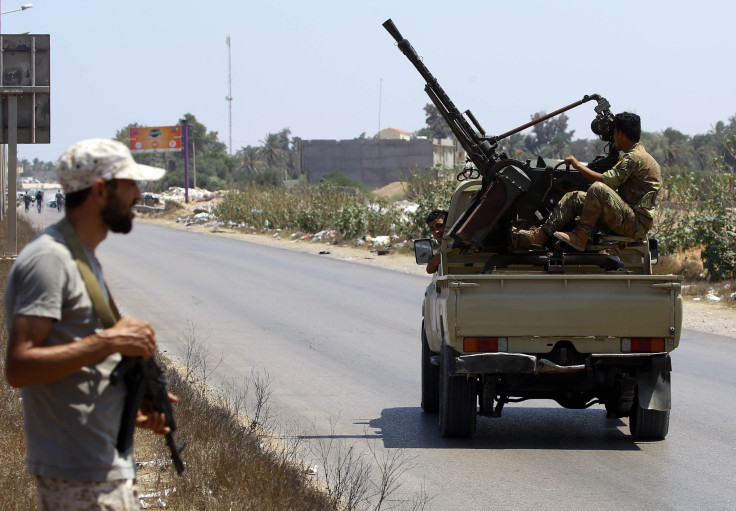Libya War May Be Imminent As Violence Escalates, US Troops Pull Out

Rising fighting, violence and killings in Libya have escalated fears of an imminent war after the rebel faction led by Gen. Khalifa Hifter stepped up fighting to capture capital Tripoli.
The government forces vowed to retaliate and conducted air strikes on the rebel bastions.
At least 21 people had been killed including a Red Cross doctor and 27 others injured, according to a spokesman of the Tripoli government.
The rebel General leading the Libyan National Army (LNA) is linked with a rival government faction based in the eastern city of Tobruk.
Meanwhile, American forces operating inside Libya has been temporarily evacuated, according to a top commander.
“The security realities on the ground in Libya are growing increasingly complex and unpredictable,” said Marine Corps Gen. Thomas Waldhauser, head of U.S. Africa Command.
Other countries and international businesses have also started evacuations as the environment in the country became tenuous, according to the latest Libya news.
Though Libya has been in turmoil since the overthrow of Col Moammar Gaddafi, this is the most significant escalation after Gaddafi’s ouster in 2011 under a popular uprising backed by NATO airstrikes.
Libya’s unity government that came up in 2015 is yet to assert its national control.
Libya’s National government warns retaliation
Tripoli’s U.N.-backed government warned that it would retaliate and defend the capital against the rebel leader’s aggression.
President of the Tripoli-based government accused Hifter of betrayal despite some deals for a peaceful reconciliation.
“We have extended our hands toward peace. But after the aggression that has taken place on the part of forces belonging to Hifter, he will find nothing but strength and firmness,” said President Fayez Serraj, promising to eliminate Hifter’s forces from the country.
However, Gen Haftar said his troops will not back down until they defeat “terrorism.” Hifter rejected calls for negotiations by the UN and other key allies.
Hifter’s LNA had been successful in annexing eastern and southern areas of Libya without much resistance. On Thursday, it started the northward push and captured a town 60 miles south of the capital. That encouraged Hifter to order the capture of capital Tripoli.
The US asks Hifter to back out
Meanwhile, the United States urged Hifter to stand down. “We oppose the military offensive by Hifter’s forces and “urge the immediate halt to these military operations against the Libyan capital,” Secretary of State Mike Pompeo said in a statement.
When Gaddafi seized power in 1969 he had the backing of Gen Hifter. But the duo fell out later and Hifter fled to the U.S on exile. He returned to Libya in 2011 as soon as the uprising against Gaddafi started and became a rebel commander.
According to BBC North Africa correspondent Rana Jawad, the defiant general's aggression suggests despite international condemnation he wanted a military victory to carve out his political space.
UN-brokered talks on Libya’s future
Haftar had been involved in many parleys from Paris to Palermo and the UAE on the future political plans in Libya.
The UN-backed talks for a road map on Libya’s elections had been scheduled for 14-16 April in the Libyan city Ghadames.
UN envoy Ghassan Salame insisted that the talks would take place until something serious forces its deferment.
© Copyright IBTimes 2025. All rights reserved.




















